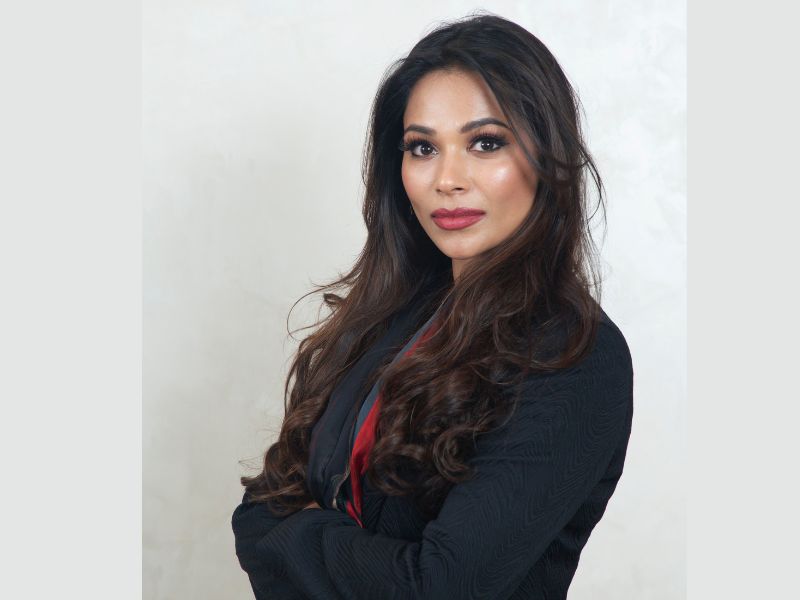Reinventing the teaching rule-book in an era of transformed education
 – Pro Vice Chairperson of DPS, Sec 45, Gurgaon, Jaipur & DPSI, Chairperson of Dharav High School, Jaipur.
– Pro Vice Chairperson of DPS, Sec 45, Gurgaon, Jaipur & DPSI, Chairperson of Dharav High School, Jaipur.
Educators worldwide have a ubiquitous view on how new-age teaching has been fundamentally transformed, especially in the last few years. Teachers have had to reimagine teaching methodologies and ways for students to express what they understand while also ensuring that students are able to learn more autonomously. The concepts of student-centred and hybrid learning were actualised across institutions and technology integration became a foundation rather than just an aid to traditional ways of teaching.
This has also led to an enhanced focus on rethinking teaching – its very design, the methodologies and techniques – to be relevant to the times as well as to ensure learning outcomes and knowledge gain which the students will be able to implement in the real, ever-evolving world.
The teacher-textbook mode of learning is fast being replaced by a collaborative student-teacher-real world application mode. Thematic knowledge needs to supplemented with learning that will enable students to become active citizens, leaders and agents of change that care about the community and the environment. Moving away from the traditional textbook-only teaching, teachers, today, need to integrate modules which derive from real-world applications and practical projects. They need to create an environment where students can work together and thrive as innovators and problem solvers of real-world issues. Design thinking and problem-based learning with focus on analytical approaches will now be a critical component of teaching methods.
In similar vein, teachers are realising the need for modern teaching approaches for students. Gamification, for instance, works very well with primary students and can be an interesting aid to traditional teaching with rewarding outcomes. New-age teaching is also more personalised. Teachers, especially during the pandemic, have realised the importance of nurturing the inherent talent of each student and designing unique learning projects while allowing them to engage and learn at their own pace.
Furthermore, schools also need to look at a reimagined evaluation system as we adopt new approaches, pedagogies and learning models. Teachers can no longer assess students on mere subject grades; we ought to devise systems which assess them on knowledge, skills and more importantly, how they are able to apply those skills in the real world which include project-based practical assignments and on-ground internships.
Teachers, today, need to evolve and learn along with the students. Teacher training, therefore, has gained a far more relevance that ever before. Learning how to navigate technology integration was perhaps tougher for some teachers than the students having to get used to online learning. It is not just ICT training; the spectrum of training needs has expanded tremendously and teachers need to constantly upskill themselves as learning methods evolve.
A well-trained teacher will also be equipped to understand the differentiated requirements of all types of students – including those from disadvantaged sections – and come up with teaching approaches accordingly. Implementation of a standardized teacher training will be a good step to aid in creation of a forward-looking and inclusive ecosystem.
Lastly, to actualise transformation on-ground, there needs to be a solid policy environment supporting teachers and their ecosystem. Teacher training should be the focus and teaching governance should be through fair consultative processes based on mutual accountability. Pre-service development as well as continued professional development (CPD) should remain priority areas for skilling and up-skilling. It is a well-researched fact that better educational performances and learning outcomes come from areas where teachers are satisfied and understand better the curricular goals. Teachers, I believe, need to consciously do a lot of ‘unlearning’ of traditional ways to adapt to a modern way of teaching and a flexible curriculum. But it also remains important to keep values at the core of this new-age transformation. In India, cultural contexts need to be kept in mind when adapting and implementing modern approaches to teaching.
Teachers are integral to achieving the learning goals we envisage for our children and the overall education reform we envision. As we focus on reinventing teaching for the modern world, I am certain that we will create cohorts of students who are well equipped to take on the future.






 – Pro Vice Chairperson of DPS, Sec 45, Gurgaon, Jaipur & DPSI, Chairperson of Dharav High School, Jaipur.
– Pro Vice Chairperson of DPS, Sec 45, Gurgaon, Jaipur & DPSI, Chairperson of Dharav High School, Jaipur.










Add comment